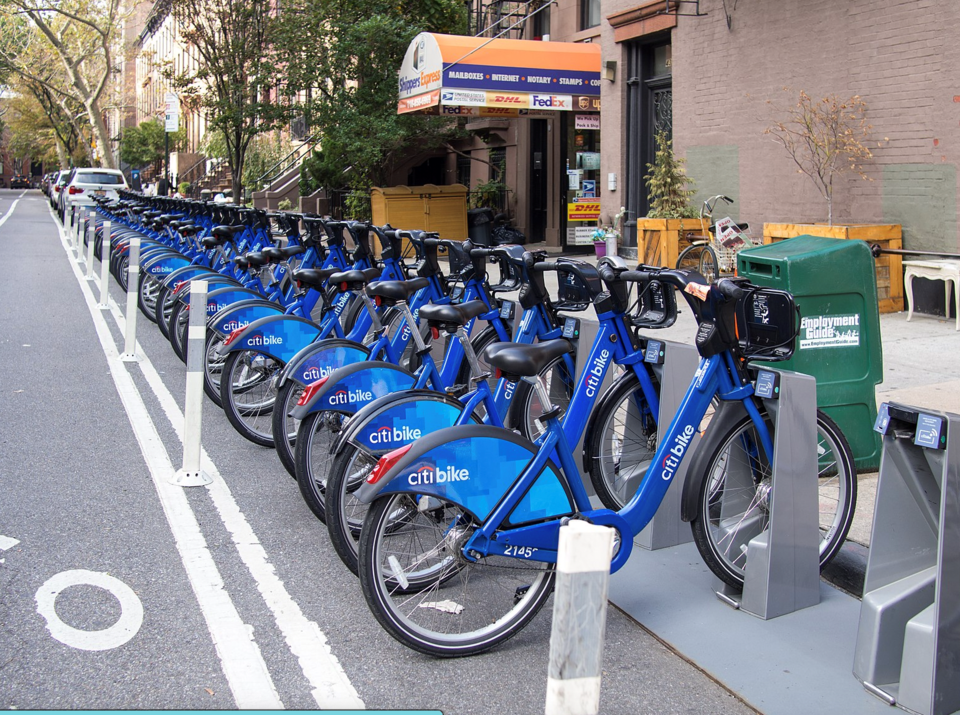A new report has revealed significant operational shortcomings for Citi Bikes under Lyft’s operation, which has left riders facing more unusable stations, longer periods of station unavailability, and more broken bikes. Low-income neighborhoods and communities of color faced these problems more significantly.
The report, Riding Forward: Overhauling Citi Bike’s Contract for More Reliable and Equitable Service, from New York City Comptroller Brad Lander found that the NYC Department of Transportation (DOT) failed to hold Lyft, which has operated Citi Bike since 2018, accountable for its failure to meet contracted performance standards.
The report calls for a contract overhaul to ensure more reliable and equitable service as well as the enforcement of performance standards.
"Citi Bike has grown to be a vital element of New York City’s transportation network, but Lyft’s failure to deliver reliable service across the system raises alarm bells. The City should overhaul the contract with more strategic performance standards and the oversight and incentives to achieve them. Making sure that New Yorkers can access working bikes and docks in every neighborhood across the city is the way to secure Citi Bike's future as an essential and equitable component of New York City's transportation network,” said Comptroller Brad Lander.
New Yorkers took 3.4 million trips on Citi Bike in September 2023, making it the largest bike share program in the country. While the network of bikes, especially e-bikes grew over the past five years, maintenance decreased. The relocation of bikes between stations, which is essential for bikes and docks to be available when and where riders need them has decreased by 80% from 2014 to 2022. With fewer rebalancing efforts, certain areas experience shortages of bikes or docks, impacting service quality.
The neighborhoods including Sunset Park, Red Hook and Kensington in Brooklyn have experienced far more empty stations and unusable bikes, disproportionately affecting Black, Latino, and low-income residents. Riders encountered Citi Bike stations with no bikes or out-of-service docks more than 20% of the time during peak hours throughout June and July 2023.
The report found no evidence that the City enforced the performance standards in Lyft’s contract. The Comptroller’s analysis found 11,6000 instances in June and July 2023 alone where stations were left completely empty or full for an hour or more. At one point in 2018, Citi Bike experienced a significant service decline with only 57% of bikes available to riders due to repair needs, though the contract requires 97% availability. These and other failures to adhere to contract requirements could have resulted in millions of dollars of fines against Lyft.
To address these challenges, the report calls for the City to initiate a comprehensive overhaul of the Citi Bike contract. Although Citi Bike’s contract does not officially expire until 2029, parties can revise the terms at any time.
The Comptroller recommends overhauling Citi Bike’s contract to deliver reliable, high-quality service in neighborhoods across the system by:
- Updating performance standards with neighborhood level requirements to ensure high-quality service throughout the system;
- Strengthening enforcement of basic performance standards by levying fines where the operator fails to meet minimum performance requirements;
- Providing financial incentives for consistently achieving and exceeding performance standards;
- Expanding eligibility for Citi Bike’s existing discounted membership program to reach more low-income New Yorkers; and
- Improving transparency through enhanced public reporting on Citi Bike’s operations.




